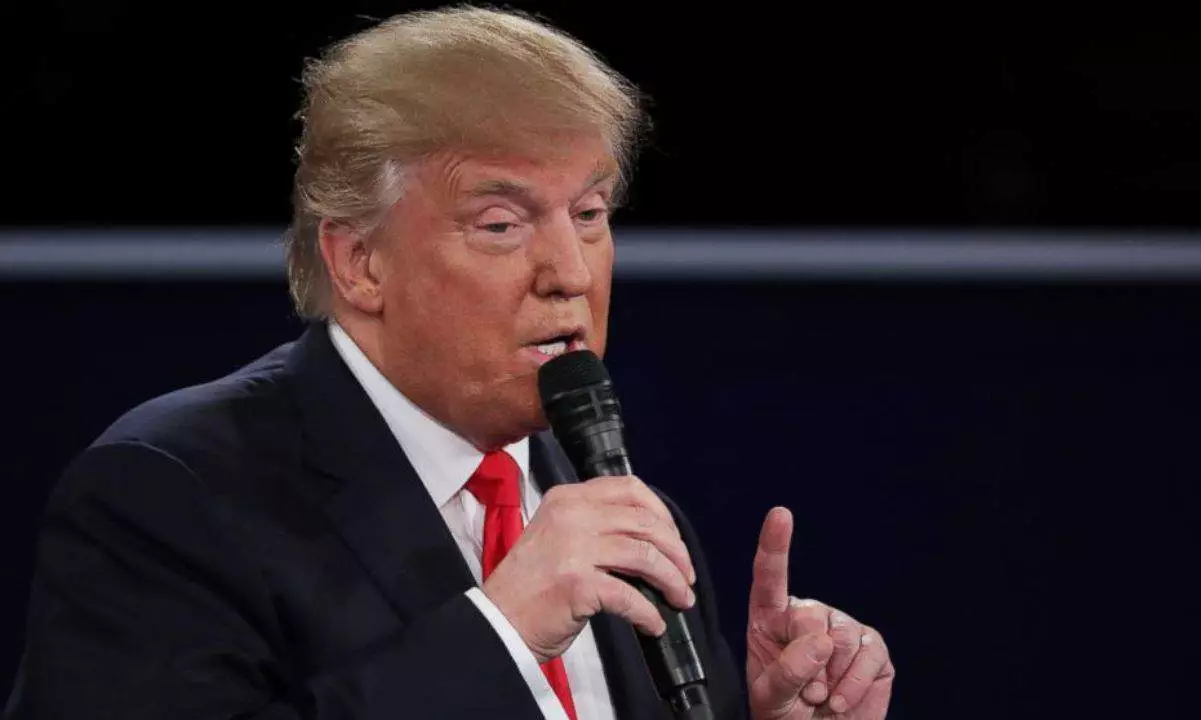Former President Donald Trump’s decision to extend pardons to significant figures in the cryptocurrency industry has sparked vigorous debates regarding the implications of such actions. Pardon, after all, is not merely a legal formalism; it embodies a political statement. When Trump pardoned the Seychelles-based cryptocurrency exchange, BitMEX, along with its founders, he did more than erase past convictions; he revitalized conversations about the legal frameworks governing digital currencies in the United States. This unprecedented act raises important questions: Are these pardons a necessary corrective to regulatory overreach, or do they undermine the law’s integrity?
These pardons mark a significant departure from traditional pardoning practices. Typically, presidential pardons focus on individuals who have been imprisoned. Instead, Trump’s focus on a corporation and its leaders rescues them from the legal ramifications of their actions—namely, the money laundering conviction stemming from a guilty plea in July 2024. The implications of these decisions extend far beyond the personalities involved; they resonate throughout the burgeoning cryptocurrency landscape, calling into question the overarching regulatory environment that governs it.
BitMEX and the Regulatory Backlash
BitMEX, which has operated since 2014, was ensnared in a web of legal issues surrounding anti-money laundering (AML) practices and failures to comply with the Bank Secrecy Act. The $100 million fine and probation it received as a consequence of its actions symbolize the U.S. government’s resolve to enforce financial regulations strictly. Yet, the counter-narrative emerging from BitMEX’s leadership paints them as scapegoats in a political game, suggesting that their pioneering role as a leading cryptocurrency exchange made them an easy target.
The sentiments expressed by BitMEX founder Arthur Hayes, claiming they were “wrongfully targeted,” suggest a growing frustration among crypto advocates with the traditional banking system’s slow adaptation to innovation. This line of thinking resonates with many who believe that cryptocurrency represents the future of finance and deserves a legislative framework that accommodates its unique qualities. Here lies a dilemma: how do we regulate an industry that thrives on decentralization while encouraging its growth?
Trump’s Pardons: A Political Calculus
Trump’s trajectory in pardoning these crypto founders touches on more than just legality; it reflects a savvy political maneuver aimed at solidifying his base. The outpourings of gratitude from the pardoned figures—like Hayes thanking Trump on social media—highlight the intertwined relationship between supporters of cryptocurrency and libertarian principles, which historically aligns with Trump’s political brand.
His pledges at events like the Libertarian Convention in May 2024 reveal an acute awareness of political currents. While some may interpret these pardons as a populist whim, others recognize them as a calculated approach to cultivate support in a community that has traditionally eschewed establishment politics. The implications for future presidential races are considerable; as cryptocurrency becomes more mainstream, candidates who recognize its significance and advocate for its deregulation may wield considerable influence.
The Speculative Future: Who’s Next?
With names like Sam Bankman-Fried and Changpeng Zhao on the lips of analysts speculating about potential pardons, the debate escalates over whom Trump might consider next in his clemency actions. Bankman-Fried, the founder of FTX, is currently embroiled in serious allegations of financial fraud, while Zhao, the leader behind Binance, remains a contentious figure under similar scrutiny. This duality of admiration and suspicion encapsulates the complex relationship between industry innovation and ethical governance.
If Trump moves to extend mercy to these figures, he may not only shift public perception but also set concerning precedents regarding the accountability required within the cryptocurrency sector. A growing chorus of voices within the crypto community sees these individuals as mavericks fighting against the system. However, should the grassroots support start to dwindle due to high-profile pardons perceived as political favoritism, the entire narrative surrounding the cause could shift dramatically.
Ultimately, the increasing speculation around future pardons reflects our society’s ongoing struggle to balance legal accountability with the burgeoning world of cryptocurrency. It also serves to highlight a powerful question: Are these pardons a necessary rescue operation against outdated laws, or a dangerous suggestion that some are above the law in a rapidly evolving digital landscape?

